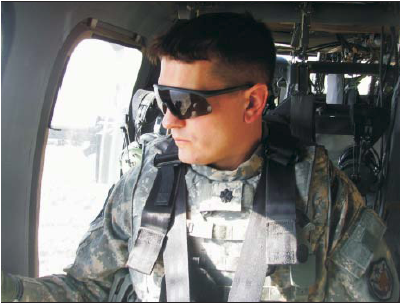|
Originally published 13 July 2017
I read a New York Times piece titled "Iraqi Prime Minister Arrives in Mosul to Declare Victory Over ISIS" in which the Iraqi Prime Minister almost stated that Mosul was liberated. Not quite, but he was really close. The same article also stated that ISIS holds an area about 200 meters by 50 meters and that was expected to be reduced (my word, not theirs) within the next day or so. A friend asked me for some thoughts regarding what is after Mosul. I share some of my response here. First of all, congratulations to the Iraqi Security Forces and all of the coalition partners who have assisted them in this difficult task. Regardless of futility toward ultimate Middle Eastern peace, this is still something an accomplishment worthy of pride. ISIS are bad guys and it is good to kill them and remove them from the equation. Second, I addressed my thoughts on what comes next (after the defeat of ISIS) earlier in this blog. Though written in March 2017, I think it is still generally accurate. My biggest concern is the reports on the exhaustion of the Iraqi Security Forces and the sporadic return of ISIS fighters to "liberated areas." I say this is my biggest concern because I have my doubts of the capability and/or willingness of the Iraqi government to provide significant infrastructure repair and attention to get Mosul back up and running in a meaningful way in anything like a reasonable time frame. I expect at least 40% of the destroyed city will still be a ghost town a year from now. That is my negative side speaking, but if I am right then this is the biggest danger. ISIS still has people and sympathetic groups in Iraq. Some of them are still operating around Kirkuk and Hawija and other places. There are also plenty of people who are inclined to support the general ideological bent of ISIS even if they don't like ISIS' management of the area when in charge. If the Iraqi government does not deliver on "reconciliation" then those who are inclined toward ISIS or ISIS-like groups will return to the idea of militant resistance and the possibility of retaking the city. I have reconciliation in quotation marks because that word has wildly different meanings to the different parties. I believe that there are elements in the Iraqi government that see reconciliation as an absence of near-genocide of Sunni inhabitants of Mosul and mass incarceration. This line of thinking implies that the fact that people are allowed to live in the rubble means that the government is reconciled with that reality. There are people in Mosul and Anbar province who see reconciliation as something much greater: infrastructure repair and improvement, benefits from Iraqi oil wealth through opportunity, employment, and political voice. That will not happen to the level that many desire. Is there a mediated settlement possible? Who is the trusted mediator seeking to achieve this settlement? The other concern is what happens to the various "coalition" members once ISIS is declared defeated? Many European members will accept the declaration and go home. The Iranians will increase their efforts to gain influence through humanitarian and social aid. The Kurds will probably have their independence referendum, but will there be Kurdish unity (of any sort) toward governance? Absent the unifying threat of ISIS it is likely that the fractious nature of Iraqi politics will explode. Will that explosion create the time and space for ISIS (or some similar minded group) to regroup or to regrow? I just finished Graeme Wood's book on ISIS (The Way of the Strangers: Encounters with the Islamic State). You may not have time to read it, but he does an excellent job of explaining why the concept of a caliphate is so motivating and why that idea and the idea of violent opposition motivated by sectarian interpretations will probably not go away. That said, it is possible that this has been a Hiroshima moment for the people of Mosul and they will not want to go back to the violence no matter what and they will change from militants to pacifists as did the Germans and Japanese (at least officially) after WWII. My opinion is no, but it is in the realm of possibility and should be considered. There are many voices who speak of the ultimate end of civil strife being when the people simply get tired of the killing. The victims are tired of it, but are the masses of Iraqis tired of the killing? Tired to the point of compromise and reconciliation? The negative voice in my head says that this point has not been reached despite the carnage and destruction throughout the country and especially in Mosul. The simple if-then statement is as follows. If the ideology of violence is more powerful than the desire for the killing to end then the violence will continue.
3 Comments
11/4/2018 00:39:21
Very Nice site thanks a lot Really amazing site I will visit again this lovely site Thanks <3
Reply
11/4/2018 16:11:54
Thanks for visiting, and thanks for your comment. So glad you like the site.
Reply
14/10/2019 23:39:57
Thanks for sharing this information. I really like your blog post very much. You have really shared a informative and interesting blog post with people. With my site we can know about top hashtag on instagram ,pcoming soon to know more
Reply
Leave a Reply. |
AuthorBrian L. Steed is an applied historian, Archives
February 2024
Categories |

 RSS Feed
RSS Feed